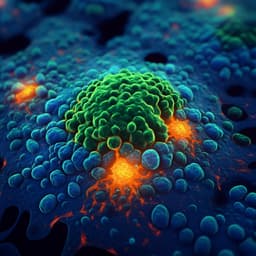
Medicine and Health
Nighttime Acid Reflux in Gastroesophageal Reflux Disease -Is It a Problem That Can Be Solved?
Y. Choi and C. M. Shin
This editorial highlights an exciting study conducted by Yonghoon Choi and Cheol Min Shin, exploring tegoprazan, a revolutionary potassium-competitive acid blocker. The results showed that tegoprazan significantly outperformed esomeprazole in alleviating nighttime GERD symptoms, paving the way for a breakthrough treatment option for those suffering from nighttime reflux. Don't miss out on the latest in GERD research!
Related Publications
Explore these studies to deepen your understanding of the subject.







